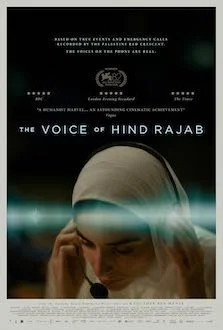Direction: Kaouther Ben Hania
Country: Tunisia / France
The third feature by Tunisian filmmaker Kaouther Ben Hania (Beauty and the Dogs, 2017; The Man Who Sold His Skin, 2020) is a powerful docudrama centered on the Israeli-Palestinian conflict. It chillingly portrays the assassination of six-year-old Palestinian girl Hind Rajab, who becomes trapped in a bullet-riddled car surrounded by Israeli tanks. Six members of her family died that day, as well as two paramedics who went to her rescue.
With this low-budget, oppressive, adrenaline-filled thriller, you are in for a few surprises. It is an enthralling examination and recreation of a horrific true event to which no one should remain indifferent. The concept is not new, but the horror and claustrophobia are deeply felt, with the film following stressed Red Crescent volunteers at a call center, desperately trying to save the wounded girl while navigating strict and complex protocols that, when they fail, intensify anguish, frustration, and emotional volatility.
Minimalist and focused, The Void of Hind Rajab hooks the viewer until the very last minute. We never leave the call center, we never see the victims, and yet the film sustains terrifying suspense. It is a war film without weapons and, simultaneously, a cry for peace. The real voice of young Rajab is used, amplifying tension and emotion, though some scenes feel overly staged. Ben Hania confronts us with the tragedy of war and our powerlessness in the face of such inhuman brutality.






